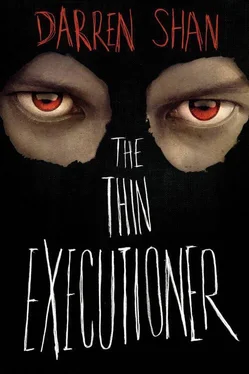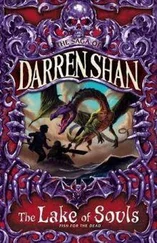The Um Siq sighed. “That’s when you’ll find out why Hubaira asked you to cut off her head.”
The next morning, before the sun rose, Ramman woke Jebel and Tel Hesani. Qattar was standing by the door, holding the bag containing Hubaira’s head. “It’s time for the Khazneh ceremony,” Ramman said.
As soon as they left the house, the song of union began. One of Qattar and Ramman’s neighbors started it, but within a minute it had been taken up by what sounded like every person in Abu Siq.
Qattar and Ramman walked side by side, while Qattar’s other husbands trailed behind. More Um Siq joined the procession but kept to the edges of the paths, where Jebel and Tel Hesani also walked.
They marched to a hill in the east, scaled it, then descended into a valley where the strangest contraption Jebel had ever seen stood waiting. It was a giant ball with dozens of windmill-like vanes protruding from it in all directions. It was set in a large pit, so only the upper half of the vane-dotted ball was visible. There were weights hanging from the vanes, and the ball was turning very slowly.
The Um Siq spread out to form a circle around the edge of the pit. They hadn’t stopped singing. Jebel got the impression that everyone in the city was gathered here, gazing at the vanes, singing the song of union.
Jebel and Tel Hesani were at the easternmost point of the pit, where Qattar had taken up position. She was standing in front of the others, singing the loudest, softly swinging the bag in her hands.
Ramman took a half-step back so that Jebel and Tel Hesani could hear him. “This machine is the Khazneh,” he said. “It’s a giant sundial. It—”
The singing shot up a notch in pitch and speed. Ramman darted forward and took the bag from Qattar. While he held it, his wife untied the knots, reached in, and lifted out Hubaira’s severed head. The girl appeared prettier in death than in life. Jebel was seized by an impulse to lean forward and kiss her, but he resisted. He was so focused on Hubaira that he failed to notice the change in the vanes. The first he knew of it was when Tel Hesani nudged his ribs and murmured, “Look.”
Jebel thought that his eyes were tricking him, that the heads on the vanes were after-images of Hubaira’s face. But when he rubbed his eyes and looked again, the heads were still there, rolling gradually out of the pit. There were loads of them, skulls with scraps of skin and hair, strapped to the vanes, all facing the sun, which was rising over the mountains farther east.
As the Khazneh revolved and more heads came into view, Jebel noticed that they weren’t all as bleached and deteriorated as the first few he’d seen. Some had more flesh and hair, an eye, an ear or a bit of tongue.
Qattar and Ramman moved around the edge of the pit, studying the heads. After several minutes they stopped, and Ramman reached out and took hold of a skull. It had been stripped bare and was white from exposure to the sun. It was tied to the vane with string, which Ramman easily cut through. When the skull came free, he tossed it to the people behind him. They let it drop, then stamped on it, crushing it to dust, singing joyously.
While the Um Siq crushed the skull, Qattar placed Hubaira’s head on the vane. Ramman produced a fresh length of string, and they tied on their daughter’s head. Once the head had been fastened, they stepped back, joined hands, and led the singing, even louder and faster than before. The Um Siq stamped in rhythm with the song, then started clapping their hands.
All of a sudden they stopped. There was a pause, one last burst of song, one huge stamp, and one final clap. Then the Um Siq returned to the city until only four were left at the edge of the pit, caught between the new day’s sun and the slowly revolving heads of the dead.
Jebel stared from the skulls to Qattar and Ramman, then back at the heads.
“Do you understand?” Ramman asked.
“No,” muttered Tel Hesani.
“The Khazneh holds three hundred sixty-one heads,” Ramman said.
“Nineteen times nineteen,” Qattar added.
“It was our last technical work of genius when we took Abu Siq back from the invaders,” Ramman said. “Until then we mourned our dead like any other race. But having lost so many, we decided to put mourning behind us.”
Qattar sighed. “It was easier said than done. Loss was hard to cope with, and the dead were impossible to forget. But we found a way, through the Khazneh.”
“We attach the heads of our dead to the vanes,” Ramman explained. “The Khazneh revolves without pause, following the path of the sun, so the heads face it every minute of the day and sink into the darkness of the earth as the sun sets.”
Jebel frowned. “How does that help you not to mourn?”
“While the dead are part of the Khazneh, they’re not truly dead,” Ramman said. “Their spirit is still part of our city, and they’re sung of as if alive. We believe they walk in the siq, separated from us by the veil of death but not truly gone.”
“An Um Siq’s spirit only departs Makhras when their head is removed from the Khazneh,” said Qattar. “Since there are three hundred sixty-one heads on the vanes, and they’re replaced in order — the oldest first — a person is usually part of the Khazneh for a generation, sometimes two or three. In most cases, when a head is removed, all who knew the person have died too, so there is nobody to mourn when their spirit finally leaves.”
“That’s why we don’t cry for Hubaira,” Ramman said. “Because you brought us her head, we have not really lost her. She is part of Abu Siq and will be for many years. If we wish to talk to her, we can come out here in the morning and wait for her to appear. If you had not delivered her head to us, there would have been a hole in our hearts for the rest of our lives.”
“Now,” said Qattar, “there is work to be done. We must return.”
Hubaira’s parents headed back to the city, humming softly, leaving Jebel and Tel Hesani to gaze with awe at the Khazneh and the decomposing faces of the not-truly-dead.
Jebel and Tel Hesani spent most of the day with Ramman once he had attended to his duties, exploring more of the city. Tel Hesani was full of questions, most regarding the Khazneh.
Ramman had to leave them again in the afternoon, to help build a house. Tel Hesani offered their services, but Ramman declined — it wasn’t the Um Siq’s custom to accept aid from outsiders. The pair wandered idly and eventually found themselves back by the Khazneh. Tel Hesani hadn’t spoken since Ramman left them. Jebel was tired of the silence, so as the slave studied the Khazneh, he said, “What are you thinking?”
“Why do you assume I was thinking about anything in particular, my lord?”
“I know your expressions,” Jebel said. “You’ve been brooding on something all day.”
Tel Hesani was surprised — he hadn’t thought the boy was that alert. His surprise made him hesitate. Jebel misinterpreted the slave’s hesitation and scowled. “You don’t have to tell me, if it’s a secret.”
“It’s no secret, my… it’s no secret,” said Tel Hesani. “I have been thinking of the beliefs of the Um Siq and the um Khathib.”
“Why?” Jebel frowned. “These people and the snake worshippers are heretics.”
“We can all learn from the faiths of others,” Tel Hesani disagreed.
“Learn what?” Jebel huffed. “If you think that you know the truth of the gods — or God in your case — why do you care what others believe?”
“Only God knows the absolute truth,” Tel Hesani said. “There is always more for men to learn. We grope towards understanding, revealing it a piece at a time. No one should ever shut off his mind to new ideas.”
Читать дальше







